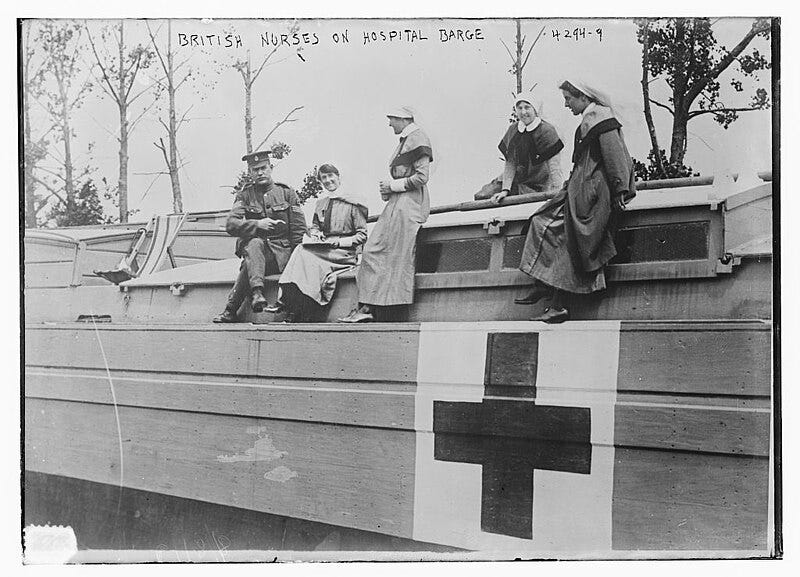Today’s Poem: Hospital Barge at Cérisy
The doctor poet Amit Majmudar examines the trauma of Wilfred Owen

Amit Majmudar is a diagnostic and nuclear radiologist, as well as a poet, novelist, essayist, and translator. Formerly the inaugural poet laureate of Ohio, Majmudar is the author of twenty books, including most recently a poetry collection, What He Did in Solitary, and a memoir, Twin A. When his thoughts turned to a consideration of the First World War poet Wilfred Owen (whose birthday was yesterday, March 18), Poems Ancient and Modern invited him to discuss a lesser-known poem by Owen.
Keep reading with a 7-day free trial
Subscribe to Poems Ancient and Modern to keep reading this post and get 7 days of free access to the full post archives.





